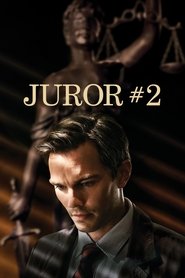Narratively, Eastwood and screenwriter Jonathan Abrams show their full hand early, with little regard for suspense – a perverse move that pays off as the film reveals itself as a stern parable of morality and conscience, exhibiting a stony contempt for the vagaries of the American justice system.[…]
Gradually, the film’s psychological weight shifts from Hoult’s suitably blank slate to a grasping public prosecutor played with chilly force and incrementally crumbling conviction by Toni Collette. As it does so, Juror #2 gains a minimalist, near-Bressonian intensity that belies the autopilot pacing and drab, yellow-filtered televisualism of its direction.
— Guy Lodge (Sight & Sound, Winter 2024)
A movie’s ending [can] distinguish itself by coming right at the start, as happens in Juror No. 2, Clint Eastwood’s curiously satisfying throwback to the middlebrow legal thrillers of the 1990s. The most old-fashioned thing about Juror No. 2—but also the most hopeful, and thereby almost avant-garde—is its faith in the American justice system. Toni Collette’s doggedly idealistic district attorney is actually named Faith! In this economy!
— Dana Stevens (Slate)
Eastwood is the only major director showing the America that I see whenever I drive through it. He’s practically the only contemporary director whose movies don’t look smothered in post-production digital gloss. He’s a director who will give you a jury whose 12 members are a bluntly symbolic cross-section of America circa 2024, but not give you any non-diegetic music to manipulate your emotions. He’s still a Hollywood director who likes speeches and dramatic twists and thudding irony, but he delivers it all with the same cool temperature and eye-level gaze that is unique to him.

